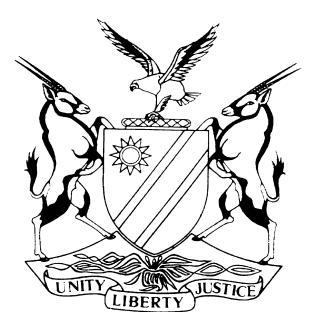5
R Not Reportable

HIGH COURT OF NAMIBIA MAIN DIVISION, WINDHOEK
RULING
Case no: CC 11/2018
In the matter between:
PIETER VAN DER WESTHUIZEN APPLICANT
v
THE STATE RESPONDENT
Neutral citation: van der Westhuizen v S (CC 11/2018) [2018] NAHCMD 314 (28 September 2018)
Coram: SIMPSON AJ
Heard: 25 September 2018
Delivered: 28 September 2018
Flynote: Criminal procedure – Section 87(1) of Act 51 of 1977 – Requirements to seek further particulars.
![]()
ORDER
![]()
The application in terms of s 87(1) of the Criminal Procedure Act 51 of 1977, to compel the State to furnish further particulars, is dismissed.
![]()
RULING
![]()
SIMPSON AJ:
[1] The applicant is charged with five counts, which are:
1. Attempted murder, alternatively contravening s 16 of Combating of Immoral Practices Act 21 of 1980 as amended using certain means to stupefy or overcome a female for immoral purposes;
2. Indecent assault;
3. Rape, contravening s 2(1)(a) of Act 8 of 2000;
4. Rape, contravening s 2(1)(a) of Act 8 of 2000; and
5. Rape, contravening s 2(1)(a) of Act 8 of 2000.
[2] The applicant applied to this court to compel the State to provide them with further particulars or certain aspects in the indictment.
[3] This application is brought in terms of s 87(1) of the Criminal Procedure Act, Act 51 of 1977.
[4] This application is brought before this court after the State declined to provide the further particulars to the applicant. Section 87(1) of the Criminal Procedure Act, states as follows:
‘An accused may at any stage before any evidence in respect of any particular charge has been led, in writing request the prosecution to furnish particulars of any matter alleged in that charge, and the court before which a charge is pending may at any time before any evidence in respect of that charge has been led, direct that particulars or further particulars be delivered to the accused of any matter alleged in the charge, and may, if necessary, adjourn the proceedings in order that such particulars may be delivered.’
[5] In Hiemstra’s Criminal Procedure, it is stated that the court must decide: (a) whether the accused need the information to answer to the charge; (b) whether the refusal to give the particulars be prejudicial to the accused; (c) what is the relevance of the particulars if it is requested after plea, but before evidence has been led; and (d) what does the interest of justice dictate.
[6] In this instance (c) is not applicable as the matter is still at the pre-trial stage.
[7] The State submitted that the charges levelled against the applicant (accused) are clear and specific. The State also made reference to the Pre-trial Memorandum whereby the applicant (accused) stated that he understands the charges against him.
[8] The State further submitted that the content of the Police docket, from which the charges were known, had been disclosed to the defence.
[9] Both the defence and the State made reference to several cases in supporting of their arguments.
[10] To answer to the criteria as set out in Hiemstra’s Criminal Procedure, supra, it is clear that the accused has all the information as to the charges, at the disposal of the State. The accused answered the questions in the Pre-trial Memorandum, which is an indication that he understands the charges against him.
[11] It is therefore clear that the State will lead evidence during the trial whereby the defence will have the opportunity to cross-examine witnesses, not only to test the credibility of the witnesses, but also to get clarity on the issues at hand.
[12] As was stated in S v Nghixulifa, Case No. CC 2/2004 the accused is not entitled to be informed about every fine particular of the case against him.
[13] It is clear that the State disclosed all possible material and that it cannot provide further particulars which it does not have.
[14] This court is therefore of the view that adequate information had been provided to counsel to prepare his defence. This court is further of the view that the refusal of such information as applied for, would not prejudice the applicant and would not be against the interest of justice.
[15] In the result the application in terms of s 87(1) of the Criminal Procedure Act 51 of 1977, to compel the State to furnish further particulars, is dismissed.
___________________
A K Simpson
Acting Judge
APPEARANCES:
APPLICANT: S T FARRELL SC
Instructed by Theunissen, Louw & Partners, Windhoek
RESPONDENT: I NYONI (with her P KUMALO)
Of Office of the Prosecutor-General, Windhoek